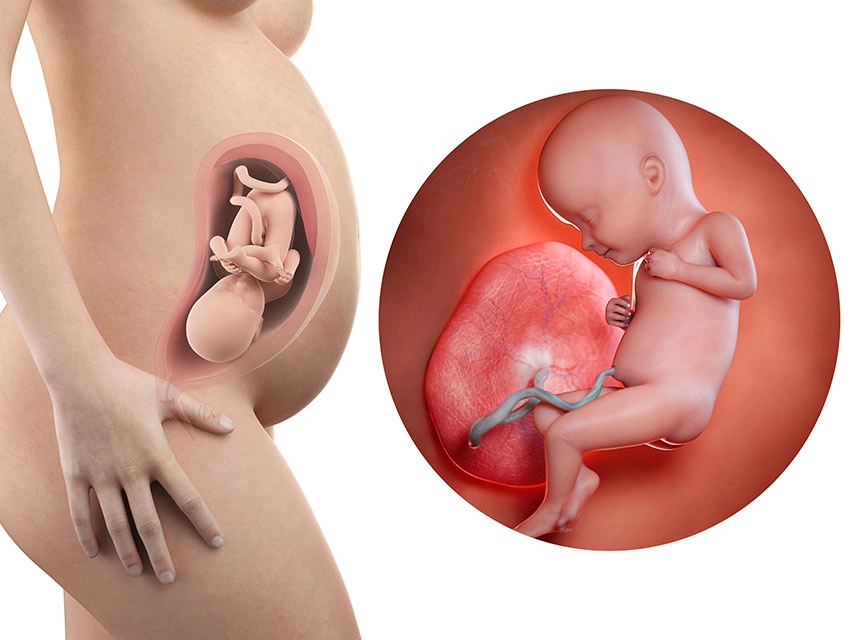At 32 weeks, your body has already undergone many major changes and is still developing. Your baby is growing fast and is changing position again, settling head-down in the uterus, so it can move through the cervix during delivery. Your body is gearing up for the oncoming labor and delivery phase.
Why engorgement happens?
You may have noticed the transformation of your breasts by now. They appear fuller, the areola becomes more dark and nipples turn stiff and hard. Your breasts are undergoing necessary changes, so as to be ready to feed the baby, as soon as it is born. During this process, your breasts may become engorged and sometimes leak. You may be wondering why this is happening while you are still pregnant, but this happens naturally and there is nothing to be worried about. Learn more about breast changes during and after pregnancy here.
Breast engorgement usually happens when you start nursing your baby after birth. This may also begin in your last trimester, at 32 weeks gestation. Colostrum, which is the first food for newborns starts to build-up. This is different from breast milk and is considered highly valuable, because it is rich in essential nutrients and antibodies. You may find it leaking, but be assured that it is normal.

What are the symptoms of breast engorgement?
In this condition, your breasts appear swollen and feel hard to touch. You may experience a tingling sensation and soreness sometimes. Swelling happens because milk is accumulated and is not utilised by the baby yet. In some cases, when the condition is severe, you may have a mild fever and because of the compression of the nerves, it may spread to armpit area, causing tingling sensation or numbness in hands.
Remedies to get relief from engorged breasts
- No matter how discomforting it may get due to engorgement, you should avoid pumping breasts while you are still pregnant, because stimulation of breasts may trigger early labor. You or your baby may not be ready yet, in case labor sets in.
- If the breasts feel hard and sore, you may apply cold compresses to ease the swelling.
- Applying cool cabbage leaves is known to help relieve pain.
- If they are leaking, you may use cotton pads inside your inner wear to absorb the fluid and not show on your clothes outside.
Engorged breasts usually go away in just a few days on their own, without needing any kind of treatment. Leaking of colostrum before baby’s birth is not going to have any effect on breastfeeding later on. You won’t have any issues with nursing or with the supply of milk.[/vc_column_text][/vc_column][/vc_row]






